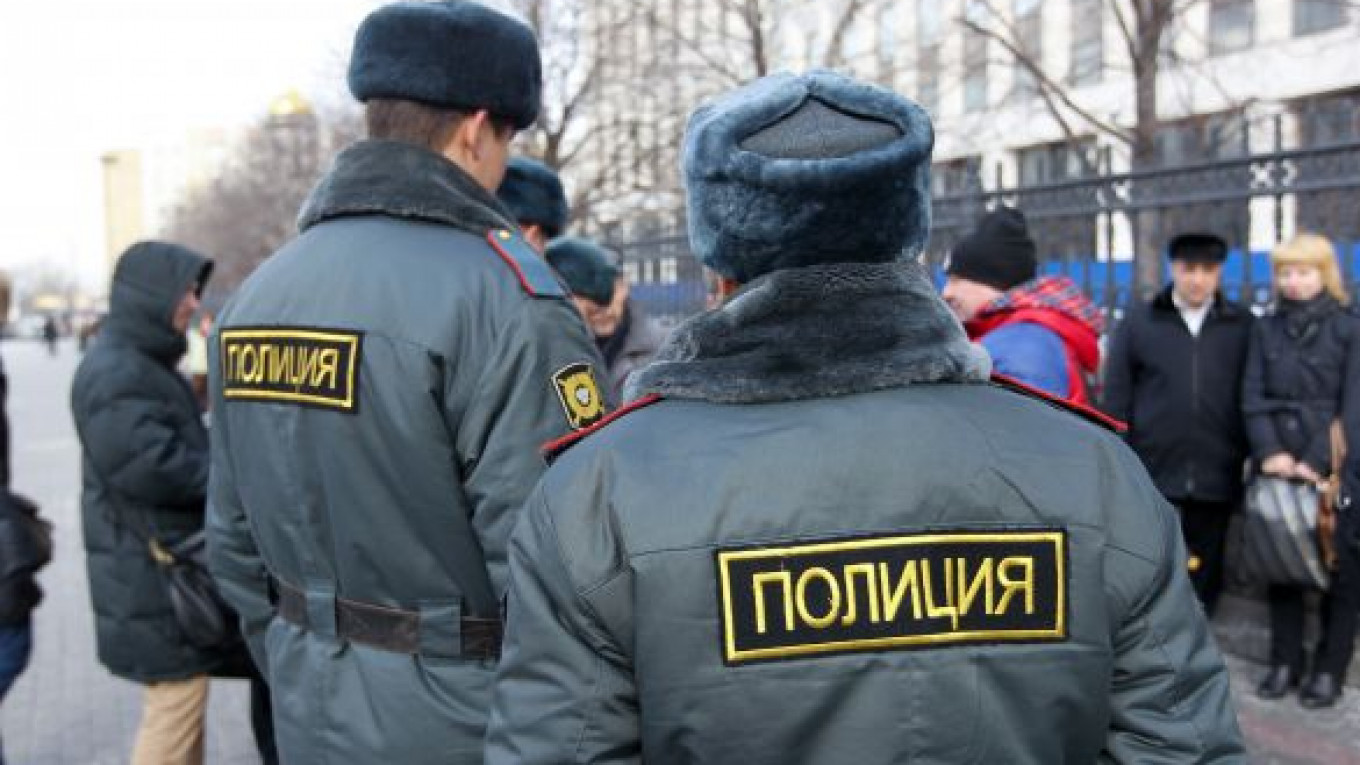The Investigative Committee is forming a department that will investigate crimes committed by police officers despite resistance to the plan from Interior Minister Rashid Nurgaliyev.
Investigative Committee chief Alexander Bastrykin has signed the paperwork for the new department, which will be established at both the federal and regional level, committee spokesman Vladimir Markin said Wednesday.
Investigators will also look into crimes that police officers commit together with members of other law enforcement bodies, but will receive assistance from the Federal Security Service because of the "additional obstacles" they face in such cases, Markin said, RIA-Novosti reported.
The new department will expand the authority of the Investigation Committee, which has emerged as a powerful agency after earlier reforms placed all investigative activities under its supervision.
The creation of the department comes soon after a headline-grabbing case of police abuse in the republic of Tatarstan where local police officers are accused of torturing and sodomizing a man in custody. The man died soon after.
Even though the number of registered crimes committed by police officers is on the rise, Nurgaliyev told the State Duma last week that he saw no need to create the department within the Investigative Committee. Nurgaliyev said half of crimes committed by police are exposed by the police themselves.
According to the Interior Ministry's internal affairs division, police officers committed about 5,000 crimes last year, including 3,000 related to corruption.
Russian law punishes police officers more severely than ordinary people for illegal activities, but police officers who commit crimes are often quickly removed from their posts and their dismissal papers are sometimes backdated, a Moscow police official told The Moscow Times.
Police officers also are often reluctant to investigate crimes committed by colleagues because of pressure from superiors worried about their own reputations.
A Message from The Moscow Times:
Dear readers,
We are facing unprecedented challenges. Russia's Prosecutor General's Office has designated The Moscow Times as an "undesirable" organization, criminalizing our work and putting our staff at risk of prosecution. This follows our earlier unjust labeling as a "foreign agent."
These actions are direct attempts to silence independent journalism in Russia. The authorities claim our work "discredits the decisions of the Russian leadership." We see things differently: we strive to provide accurate, unbiased reporting on Russia.
We, the journalists of The Moscow Times, refuse to be silenced. But to continue our work, we need your help.
Your support, no matter how small, makes a world of difference. If you can, please support us monthly starting from just $2. It's quick to set up, and every contribution makes a significant impact.
By supporting The Moscow Times, you're defending open, independent journalism in the face of repression. Thank you for standing with us.
Remind me later.






